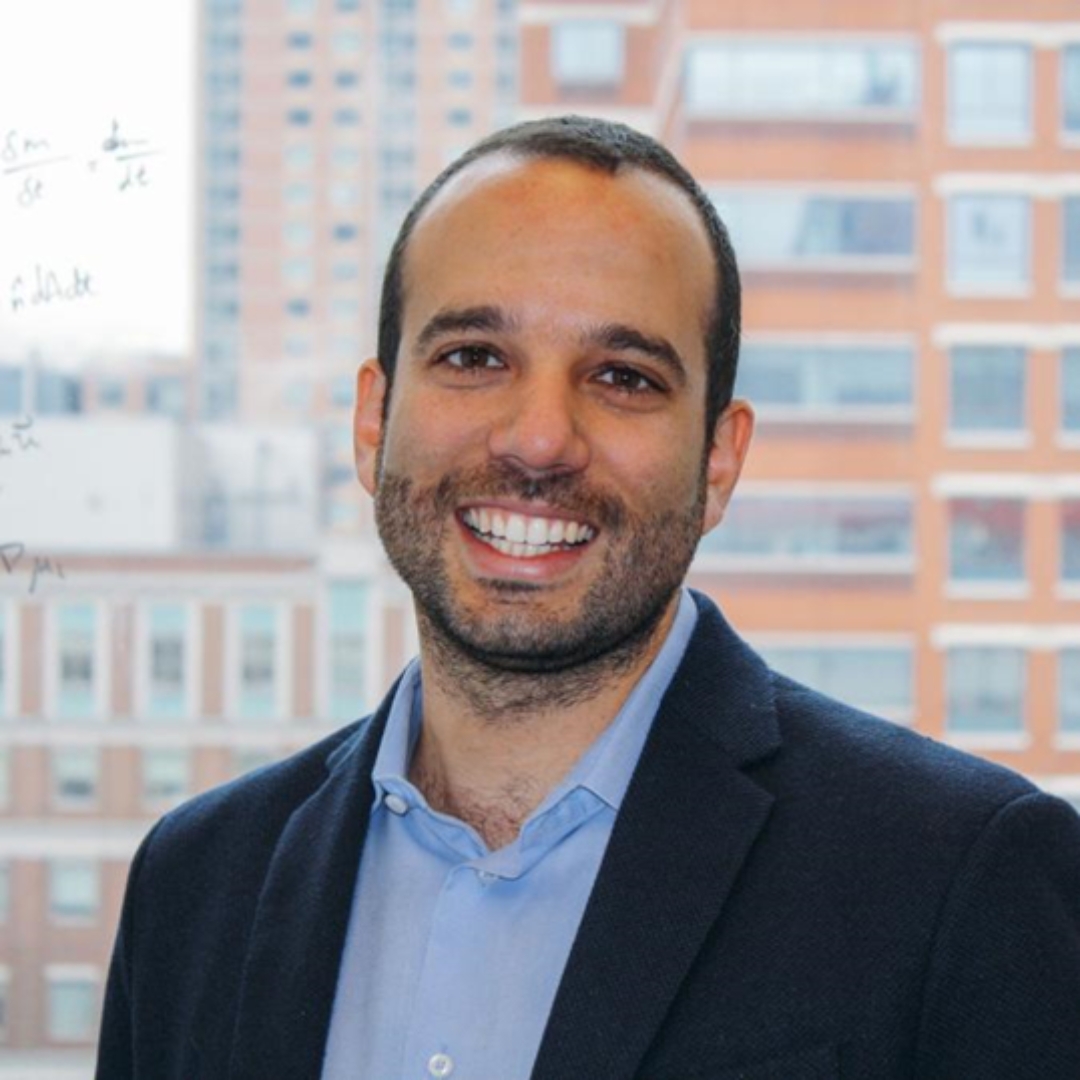
Miguel Modestino
Donald F. Othmer Associate Professor of Chemical Engineering and Director of the Sustainable Engineering Initiative
New York University
Engineering Electro-organic Reactions for Sustainable Chemical Manufacturing
May 15
4:00–5:00 p.m.
Physics/Astronomy Auditorium A118
Abstract
The chemical industry produces more than 70,000 products (1.2 billion tons in total) via thermal processes powered by fossil fuel combustion, accounting for ~5% of the US energy utilization and >30% of the US energy-derived industrial CO2 emissions. Amongst these processes, the production of organic chemical commodities accounts for most of the energy utilization (>1200 TBTU/y), and the electrification of these processes via the implementation of electro-organic reactions could enable the integration of renewable electricity sources with chemical plants and accelerate the decarbonization of the chemical industry. Currently, however, two major challenges prevent the deployment of electro-organic reactions at scale: their low selectivity and their low production rates. To circumvent these barriers, my group combines electrochemical reaction engineering principles and machine-learning methods to accelerate the development of high-performing electro-organic reaction processes.
In this presentation, I will discuss our work on understanding and improving the production of adiponitrile (ADN), a precursor to Nylon 6,6, via the electrohydrodimerization of acrylonitrile (AN). This is the largest and most successful electro-organic reaction deployed in industry and serves as a test case for the development of large-scale organic electrochemical processes. Our investigations on ADN are aimed at uncovering the relationship between the electrochemical environment at and near the electrical double layer (EDL) and reaction performance metrics (i.e., selectivity, efficiency, and productivity). I will discuss general guidelines for electrolyte formulation and provide insights into the role of different electrolyte species (e.g., buffer ions, chelating ions, selectivity-directing ions, and supporting ions) in achieving conversions of AN to ADN with selectivity as high as 83%. I will also present how carefully controlling pulsed electrosynthesis conditions guided by active machine learning can help mitigate mass transport limitations, control the concentration of AN near the EDL and enhance the production rate of ADN by >30%.
Our learnings on ADN electrosynthesis helped us to also engineer the electrocatalytic hydrogenation of ADN to hexamethylenediamine (a Nylon 6,6 monomer), achieving the highest reported selectivity to date for this reaction (>95%). To further accelerate the development of high-performing electro-organic processes, my group has recently developed new machine-learning methods for rapid reactor outflow analysis using inexpensive spectroscopic tools and Bayesian optimization methods that leverage physical models to maximize process performance. These new tools are critical components of future autonomous workflows that will help us accelerate the electrification of petrochemical processes with large carbon footprints.
Bio
Miguel A. Modestino is the Director of the Sustainable Engineering Initiative and the Donald F. Othmer Associate Professor of Chemical Engineering at New York University (NYU). Miguel obtained his B.S in Chemical Engineering (2007) and M.S. in Chemical Engineering Practice (2008) from the Massachusetts Institute of Technology, and his Ph.D. in Chemical Engineering from the University of California, Berkeley (2013).
From 2013-2016, he was a post-doctoral researcher at the École Polytechnique Fédérale de Lausanne (EPFL) in Switzerland where he served as project manager for the Solar Hydrogen Integrated Nano-electrolysis (SHINE) project. He is a winner of the Global Change Award from the H&M Foundation (2016), the MIT Technology Review Innovators Under 35 Award in Latin America (2017) and Globally (2020), the ACS Petroleum Research Fund Doctoral New Investigator Award (2018), the NSF CAREER Award (2019), the Inaugural NYU Tandon Junior Faculty Research Award (2020), and TED Idea Search Latin America (2021).
His research group at NYU focusses on the development of electrochemical technologies for the incorporation of renewable energy into chemical manufacturing. He is also co-founder of Sunthetics Inc., a startup developing machine learning solutions to accelerate the development of sustainable chemical processes.